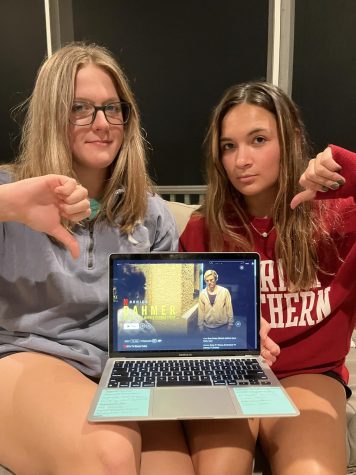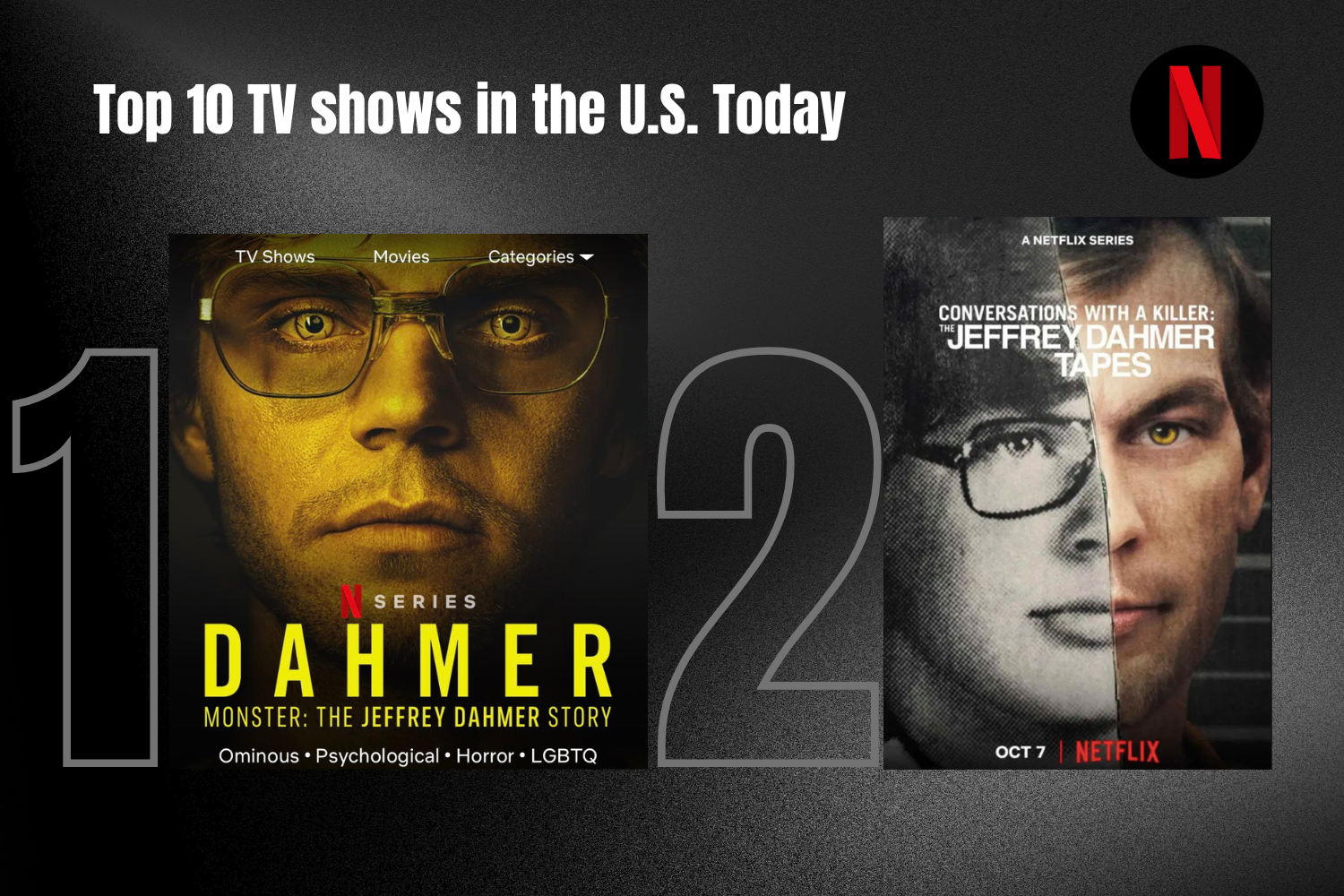Obsession with violent media leads to insensitivity
October 19, 2022
With the climbing popularity and fascination with violence in television, media, and video games, humanity is becoming desensitized to the true weight of violence. Wide exposure to gruesome and explicit content brings overexposure and a loss of respect to the tragedies themselves.
The recent release of Dahmer, a Netflix series that highlights Jeffery Dahmer’s explicit murders, has seen a wave of popularity amongst viewers. The show has held a Netflix Top 10 spot for two weeks with 299,840,000 hours of viewing. As of October 11, 2022, Dahmer is the Number 1 watched show on Netflix for the week and the 9th most watched Netflix show ever. Dahmer is joined by other popular true crime shows such as Criminal Minds, a TV show that delves into the motives of criminals, and Ted Bundy: Extremely Wicked, Shockingly Evil, and Vile, a movie about the case of Ted Bundy. This attention desensitizes viewers and causes them to romanticize brutality.
feel like people need a reminder that jeffrey dahmer was a REAL and vile person and not just some fictional character. stop making edits of him. stop making memes. stop making jokes. stop calling him attractive. he was a vile and disgusting human being.
— rory ꨄ︎ (@charIuvbot) October 12, 2022
This fascination with fictional violence also exists in real life. Jeffery Dahmer and Ted Bundy both had a large female fanbase. This can be seen in the female fans criminals such as Bundy and Dahmer had while in jail. Women attending Bundy’s jury attempted to match the characteristics of his victims, wearing brown, middle-parted hair and gold hoop earrings. In addition, women set these criminals and other notorious killers love letters while in jail. The letters often asked for autographs, gave praise to the criminal, and sometimes even included explicit images of the women.

This attraction some women have for serial killers or other violent felons is called Hybristophilia. Due to modern media, the news of the killers is easily and widely spread, therefore the story is exposed to a wider audience. In addition, women who start dating convicted killers after incarceration often feel that they feel needed. Carole Anne Boone, a woman who married Ted Bundy while in jail, is a perfect example of this. Boone only saw Bundy on occasional visits, on which he was on his best behavior, and Bundy was reliant on her. This is a large part of the appeal women sometimes feel for serial killers, cult leaders, or other violent criminals.
This romanticization of murderers feeds into the lack of humanity that is beginning to encompass society. The families of the killer’s victims are still alive and often see these instances taking place. Cassidy Forte (‘25) says, “I think it would impact the families strongly because they had to live through that. The fact these people are fascinated by him is sickening knowing how these families are hurting. I heard they didn’t ask the families for permission when making the show.” Although to most viewers, true crime TV shows or movies, such as the new Dahmer series, are just an interesting, and eerie form of entertainment, it is incredibly insensitive to those who have lost loved ones at the hands of these criminals. It is difficult for these families to see the person who killed their loved one being made famous or romanticized through media.

Many refer to their interest in true crime as a “guilty pleasure” The popularity of the true crime genre is just one part of the widespread enjoyment of horror. People like to feel fear in a contained environment that is not realistically threatening. Criminologist Dr. Scott Bonn says, “Serial killers excite and enthrall people, much like traffic accidents, train wrecks, or natural disasters. People don’t want to look, but they can’t look away.” People are entertained by the “can’t look away” nature of these crimes. In addition, many individuals seek to understand the motivations of criminals. This gains attention because although people want to understand the “why” factor, in many cases they can never truly understand because there is no explicit reason.
The growing obsession with violent video games at a young age is another factor in society’s expanding lack of sensitivity. When surrounded with this gore as a mentally-developing child, the children are desensitized to actual violence because they see it as the “norm”. These video games intertwine violence into the game for the same reason people enjoy learning about true crime: they are drawn in by the discomfort. When seeing the violence in their video games, the children are uncomfortable and somewhat scared. Mentally, this further engages them in the game. The companies acknowledge this effect and it helps amplify their sales. Emme Shoop (‘24) says, “My brothers played video games at a young age, and I think that it made them more comfortable with seeing violence.”
It is essential to limit society’s intake of violent media in order to truly understand the magnitude of violence that occurs in reality. One does not have to completely stop playing video games or watching true crimes, but we should all view this violence with an understanding of its importance and not treat it as something comical. Understanding is important in not being blinded by the violence in our daily entertainment.

